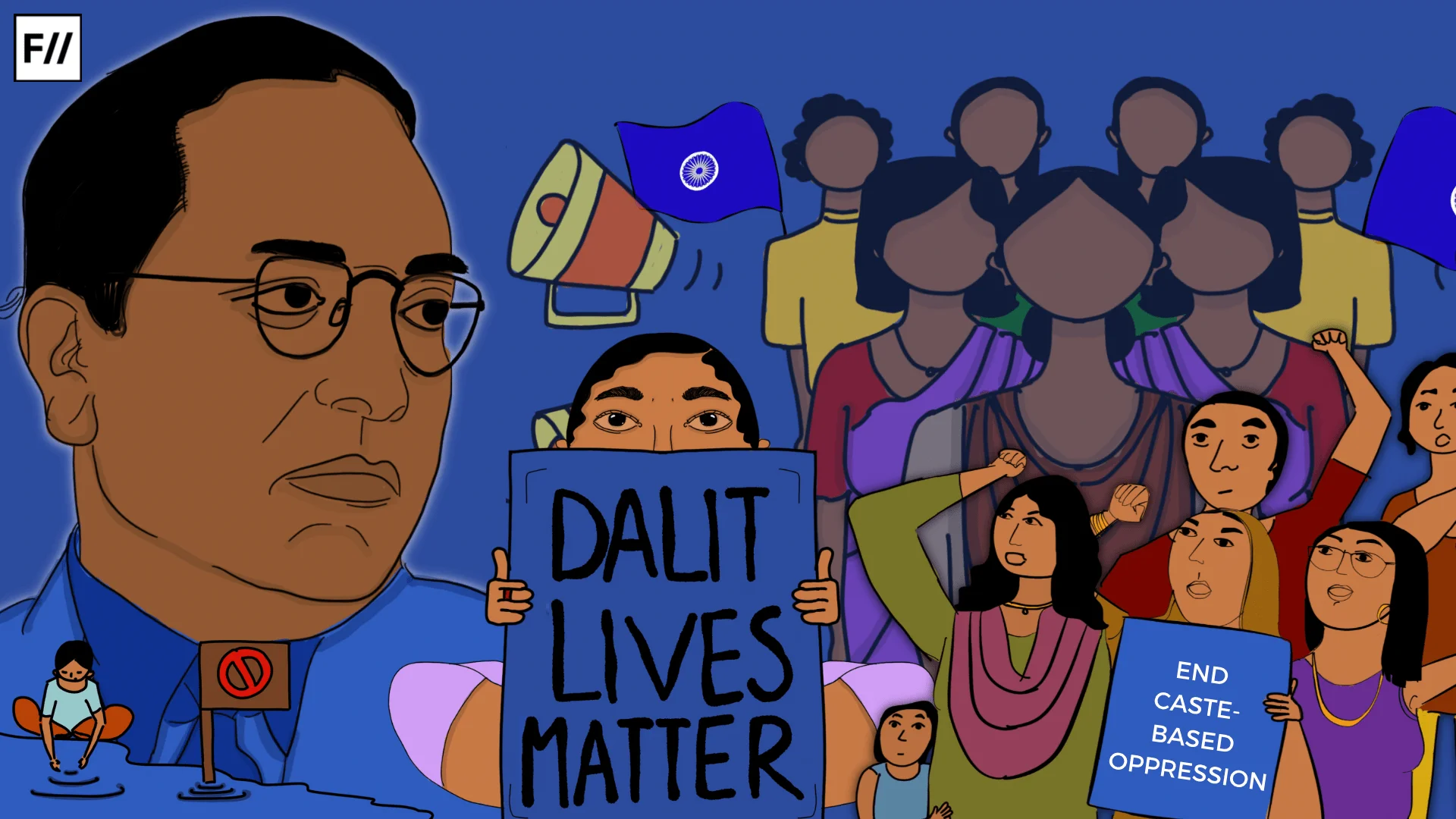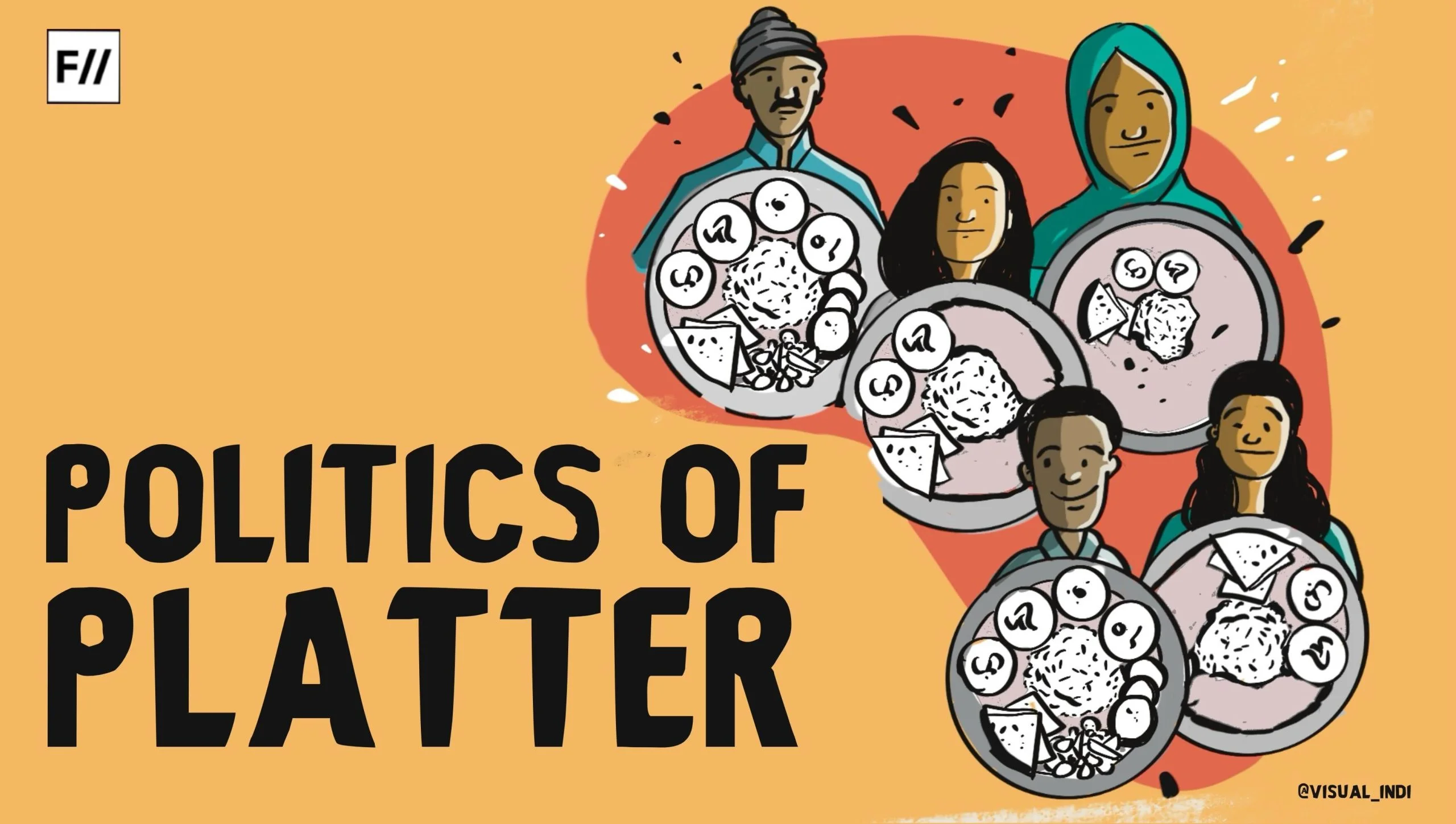Dr BR Ambedkar was born in April, which is also recognised as “Dalit History Month” across the globe. The first call for Dalit History Month was made by a Tamil Dalit activist, Paari Chezhian in 2011 in a blog post. The concept was later put into action by a six-member team of Vee Karunakaran, Christina Thomas Dhanaraj, Asha Kowtal, Sanghapali Aruna, Manisha Devi and Thenmozhi Soundararajan in 2015. It was modelled after Black History Month in America.
The month holds symbolic importance because it recalls the caste-based violence, atrocities, abuse, marginalisation, and subjugation that Dalit minorities, Adivaisis, Bahujans, and Scheduled Tribes have had to endure in a deeply caste-divided and polarised Indian society. The month also honours the memory of those who made supreme sacrifices, led revolutionary movements, and feminist and intersectional campaigns and shaped & improved the history of Dalits and other caste minorities.
It has been observed that the current political system is tightening its grip on minorities more firmly, leading to lynchings, killings, humiliations, sub-humanisation, and boycotts. Dalits and other caste minorities have been subject to systematic violence, oppression, and ostracisation for centuries.
Patriarchal Brahmanism and Hindus of the upper caste and class varna, in addition to the crimes promoted by the state, severely marginalise and discriminate against Dalits, Adivasis, and Scheduled Tribes.
The month holds symbolic importance because it recalls the caste-based violence, atrocities, abuse, marginalisation, and subjugation that Dalit minorities, Adivaisis, Bahujans, and Scheduled Tribes have had to endure in a deeply caste-divided and polarised Indian society.
Dalits have been marginalised on all fronts in an atmosphere of prejudice from many directions, including economic, sociopolitical, and cultural exclusion.

Consequently, it is important to list and record the histories, revolutionary movements, and feminist groups that have existed and are still active in the Dalit discourse. The purpose is to preserve and sustain a space that is strictly for Dalits and other caste minorities, free from interruptions from Brahminical and Varna narratives.
To create more enlightening and accurate Dalit discourse, this month is the time to learn, unlearn, and rewrite the histories, narratives, testimonies, and accounts of Dalits and other minorities autonomously from the influence of Brahminical and Varna caste narratives and perspectives.
It is important to list and record the histories, revolutionary movements, and feminist groups that have existed and are still active in the Dalit discourse. The purpose is to preserve and sustain a space that is strictly for Dalits and other caste minorities, free from interruptions from Brahminical and Varna narratives.
In April 2023, Feminism In India is seeking entries for “Dalit History Month” to change the prevalent Brahminical & Varna discourse about Dalits and other caste minorities and to create a Dalit discourse. We aim to start conversations, hone and contribute to histories, and construct a Dalit exclusive discourse. We would encourage Dalit authors to write the pieces because of our stringent, anti-appropriation editorial policy.

In April 2023, Feminism In India is seeking entries for “Dalit History Month” to change the prevalent Brahminical & Varna discourse about Dalits and other caste minorities and to create a Dalit discourse. We aim to start conversations, hone and contribute to histories, and construct a Dalit exclusive discourse. We would encourage Dalit authors to write the pieces because of our stringent, anti-appropriation editorial policy.
Following are some tips and suggestions for your articles:
- Dalit Movements, Protests, Resistances
- Represnatation of Dalits in Insititutions and establishments
- Political representation, representation in sports, films, pop culture and literature
- Looking at the films, books and pop culture through the Dalit gaze
- Historical moments of intersectionality (Disability, Sexuality, Gender, Religion, Class, Conflict)
- Oppression and violence against Dalit and Dalit women
- Gender-based violence against Dalit women and other genders
- Personal accounts
This list is not exhaustive and you may feel free to write on topics within the theme that we may have missed out on here.
Please refer to our submission guidelines before you send us your entries. You may email your submissions to shahinda@feminisminindia.com
We look forward to your drafts and hope you enjoy writing them!




